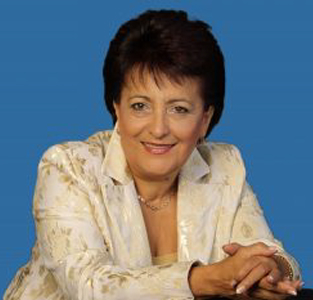ISSN: 2073-2635
eISSN: 2949-270X
eISSN: 2949-270X

The Russian system of professional training of teachers at the present stage has ceased to fully satisfy the needs of the state and society related to changes in the format and forms of interaction between students and teachers, global digitalization and openness of the educational space. The system of teacher training in the Russian Federation is multi-stage and is built on the basis of taking into account traditional approaches and principles to this process. However, at the present stage, there is a digital transformation of society and the tendency to comply with regional characteristics and personnel needs is strengthening, which implies the creation of an updated regional system of continuous pedagogical education in the digital educational environment. The article presents a look at solving the problem of determining the methodological foundations of the formation and development of such a system based on the definition of innovative methodological approaches and principles for designing the content of education of teachers in institutions of higher and additional professional education. Methodological aspects of network interaction and mutual influence of subjects of the regional system of continuous pedagogical education are revealed and substantiated, taking into account the specifics of the use of digital technologies and resources and the peculiarities of regional development.
The article deals with the problems and patterns of development of the emotional intelligence of schoolchildren as a predictor of educational and social success of students at different levels of general education. The purpose of the study is to conceptually substantiate the relationship between emotional intelligence and the success of a person during school childhood and, based on a review of psychological and pedagogical sources, to identify effective methods for the formation of emotional intelligence in the educational space of a general education school. The concept of emotional intelligence, the structure and criteria for its formation are specified. The interdependence of emotional and social intelligence is traced in the context of the formation of educational success and social success of schoolchildren. The novelty of the study lies in the fact that the age, psychological and pedagogical conditions for the formation of the emotional intelligence of children and adolescents are described by means of educational and upbringing activities. A review of domestic and foreign scientific and pedagogical literature on the problems of emotional intelligence is presented. he methods of formation of emotional intelligence in children of school age re classified. Methods for diagnosing emotional intelligence in a general education school are described. The prospects for the formation of emotional intelligence in the system of school education as a factor in the development of human capital are assessed.
Background. In the current situation, in terms of state policy priorities for the preservation and strengthening of traditional Russian spiritual and moral values, the need to increase and realize the potential of a classical university in the development of the civil and patriotic identity of future teachers increases.
Objectives. The goal is to identify the conditions for the development of civil-patriotic identity of future teachers, in which the environment of a classical university acts as a generator of students’ value-semantic consciousness.
Study Participants. The study is based on an analysis of the work experience of more than two dozen universities for the period from 2020 to the present and an analysis of modern research in the field of patriotic education (more than 50 dissertations) over the past decade.
Methods. Theoretical modeling, analysis of teaching experience and modern research were applied.
Results. Based on the analysis of teaching experience and modern research, the resources of university education that contribute to the civic and professional socialization of students have been identified. The result of theoretical modeling was a model for implementing a situational-event approach to the development of civic activity and professional orientation of students of pedagogical specialties. The conditions for the development of civil-patriotic identity of future teachers have been identified, in which the environment of a classical university acts as a generator of students’ value-semantic consciousness.
Conclusions. The educational environment of the university has significant potential for shaping the personality of the future teacher, including civic and patriotic identity. The personal development resources of the university are associated with the real involvement of its scientific and educational process in the technological progress of the country, which allows students to feel their involvement in the development of the scientific, technological and cultural potential of the Fatherland. The university environment actualizes the conditions for the development of the individual as a subject of social and professional creativity. The assimilation of values significant for Russian society, civil-patriotic and professional identification proceed in unity, which represents one of the specific educational resources of the university. The development of the personality of the future teacher, his civic and professional qualities is implemented on the basis of a situational-event mechanism, the essence of which is to saturate student life with the events in personal development


